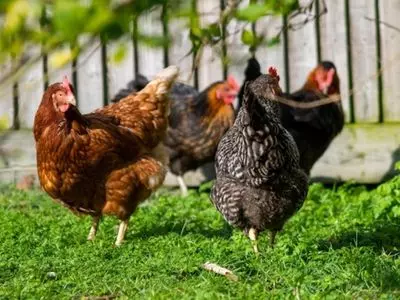No products in the cart.
Chicken
What Time of Day Do Chickens Lay Eggs? 2022 GUIDE
Most people know chickens lay eggs, but what time of day do chickens lay eggs? Do they all lay eggs simultaneously, or does it depend on the chicken? These are questions that many people have, so we’re going to take a closer look at when chickens lay eggs. Keep reading to find out!
*This post may have affiliate links, which means I may receive commissions if you choose to purchase through links I provide (at no extra cost to you). As an Amazon Associate I earn from qualifying purchases. Please read my disclaimer for additional details.
What Time of Day Do Chickens Lay Eggs, and Why?
Chickens typically lay eggs early in the morning, often before the rising sun. There are a few reasons for this so let’s look at a few.- Laying eggs at dawn helps chickens stay cool because during the day the temperatures get pretty hot.
- Laying eggs early in the morning gives chickens the entire day to eat and drink, which helps them to stay healthy and produces strong shells.
- Predators are less active in the early morning hours, so chickens are less likely to be attacked while they’re busy laying eggs.
How to Tell if a Chicken is Laying Eggs

The Benefits of Raising Chickens for Eggs
Chickens are poultry birds that are most commonly known for being raised to produce eggs. Chickens can lay anywhere from 1 to 7 eggs daily and usually lay their eggs early in the morning. There are many benefits of raising chickens for eggs:A Continual Supply of Fresh Eggs
Store-bought eggs can be expensive, and they’re not always fresh. When you have your chickens, you can be assured that the eggs are as fresh as possible.You’re in Control
Another benefit of having chickens is knowing what the chicken has been fed and what environment it was raised in. When you buy eggs from the store, you never know exactly what went into caring for the egg-laying chickens. When you raise your chickens, you can ensure that they’re fed a healthy diet and raised humanely so you feel better about using the eggs. Read More: How Long Can Chickens Go Without Food and Water? Chickens shouldn’t go longer than a few days without food. Here’s what to know.Free Fertilizer
In addition to the fresh eggs, raising chickens for eggs can also provide you with a source of fertilizer for your garden or farm. Chicken manure is high in nitrogen and other essential nutrients, making it a perfect natural fertilizer for plants.It’s Fun!
Finally, raising chickens can be a fun and rewarding experience. Raising chickens is an excellent option whether you are looking for a way to save money or want to have fresh eggs. Read More: What Chickens Lay White Eggs? Want the pure white eggs without the trip to the grocery store? These are the chickens that lay the whitest eggs!How to Incubate Chicken Eggs So They Hatch

- An incubator
- A thermometer
- A humidity gauge
What to Do With Chicks Once They’ve Hatched

- You need to make sure that they have food and water. Chicks need a particular type of food called “starter feed,” which is higher in protein than regular chicken feed. They also need access to fresh water at all times.
- You need to provide them with a warm place to stay. Chicks need a temperature of between 95 and 100 degrees Fahrenheit for the first week of their lives. After that, you can gradually start lowering the temperature by 5 degrees per week till they are fully feathered and can regulate their body temperature.
- Keep an eye out for signs of illness and injury.

